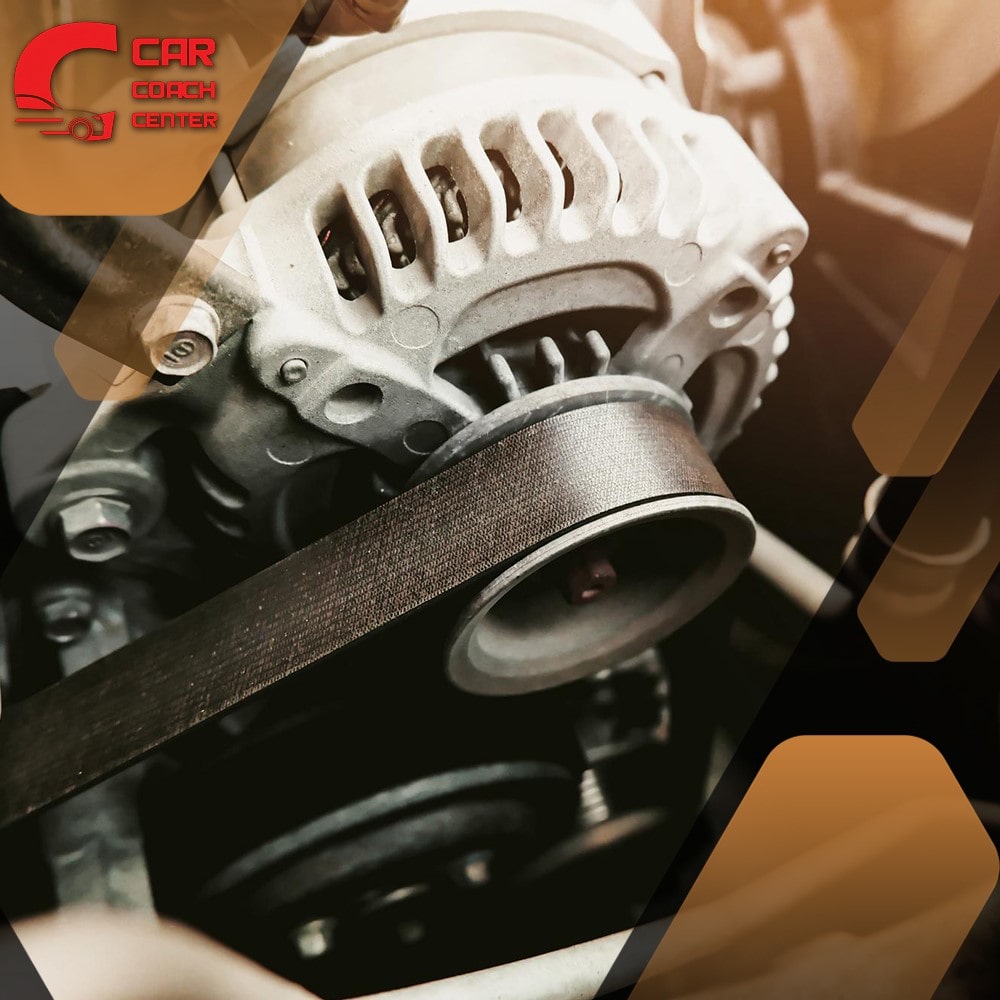Can You Drive A Car With A Bad Alternator
Imagine this scenario: you’re about to embark on a road trip, excitedly packing your bags, when suddenly, your car refuses to start. You hear that dreaded clicking sound; all signs indicate a faulty alternator. Now, you’re left wondering, can you drive with a bad alternator? This article delves into the realities and risks of operating a vehicle with a failing alternator.
An alternator plays a critical role in powering your car’s electrical system and ensuring a continuous charge to the battery while the engine runs. When it malfunctions, it can lead to a cascade of issues affecting various components of your vehicle.
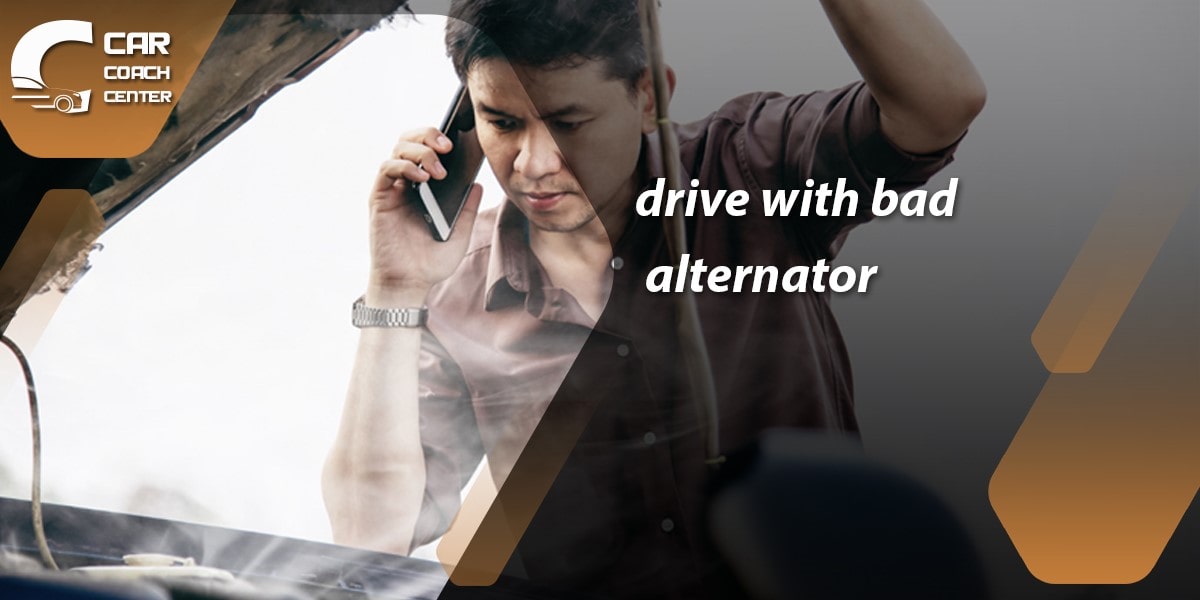
In this comprehensive guide, we’ll explore the warning signs that indicate a failing alternator, the impact on your vehicle’s performance, the potential risks of driving with a faulty alternator, temporary solutions to keep you moving, and the importance of considering professional help for repair or replacement. Let’s delve into this important topic and suggest whether hitting the road with a bad alternator is safe.
The Warning Signs: Recognizing the Symptoms of a Failing Alternator
Can you drive with a bad alternator? Before we answer that question, it’s crucial to understand the warning signs that indicate a failing alternator. By recognizing these symptoms early on, you can take appropriate action to prevent further damage and ensure your safety on the road.
One of the most common signs of a failing alternator is dim or flickering headlights. The headlights may appear noticeably dim when the alternator struggles to generate enough power, especially at low engine speeds. This can also extend to other electrical components, such as interior lights or dashboard indicators, showing reduced brightness or erratic behavior.
Another telltale sign is a dead or weak battery. The alternator is responsible for recharging the battery while the engine is running. If you consistently experience difficulty starting your vehicle or notice the battery warning light on the dashboard, it could indicate an alternator problem.
Pay attention to unusual sounds as well. A squealing noise from the engine compartment, particularly during engine startup, could suggest a loose or worn-out alternator belt. Alternatively, a grinding or whining noise might indicate a failing bearing within the alternator.
Electrical issues can also arise from a bad alternator. You may encounter problems with the power windows, radio, or other electrical accessories, such as erratic operation or intermittent failures. Additionally, dashboard warning lights related to the charging system, such as the battery or alternator light, should not be ignored.
The Impact on Vehicle Performance: How a Bad Alternator Affects Your Drive
Can you drive with a bad alternator? Understanding the impact of a faulty alternator on your vehicle’s performance is crucial in determining whether it’s safe to hit the road. A bad alternator can significantly affect your drive in various ways, making it important to address the issue promptly.
First and foremost, a failing alternator can lead to an unreliable electrical system. As the alternator struggles to generate sufficient power, you may experience fluctuations in voltage, causing intermittent failures or erratic behavior of electrical components. This can range from dimming headlights and flickering interior lights to malfunctioning power windows, radios, or other accessories. Such electrical issues can be inconvenient and potentially hazardous, as they may compromise visibility or essential functions while driving.
Moreover, a bad alternator can affect the charging capability of your vehicle’s battery. The alternator’s primary function is to recharge the battery as the engine runs. The faulty alternator may fail to provide a consistent charge, resulting in a weakened battery. This can lead to difficulties starting your vehicle or even sudden battery failure while driving, leaving you stranded and needing assistance.
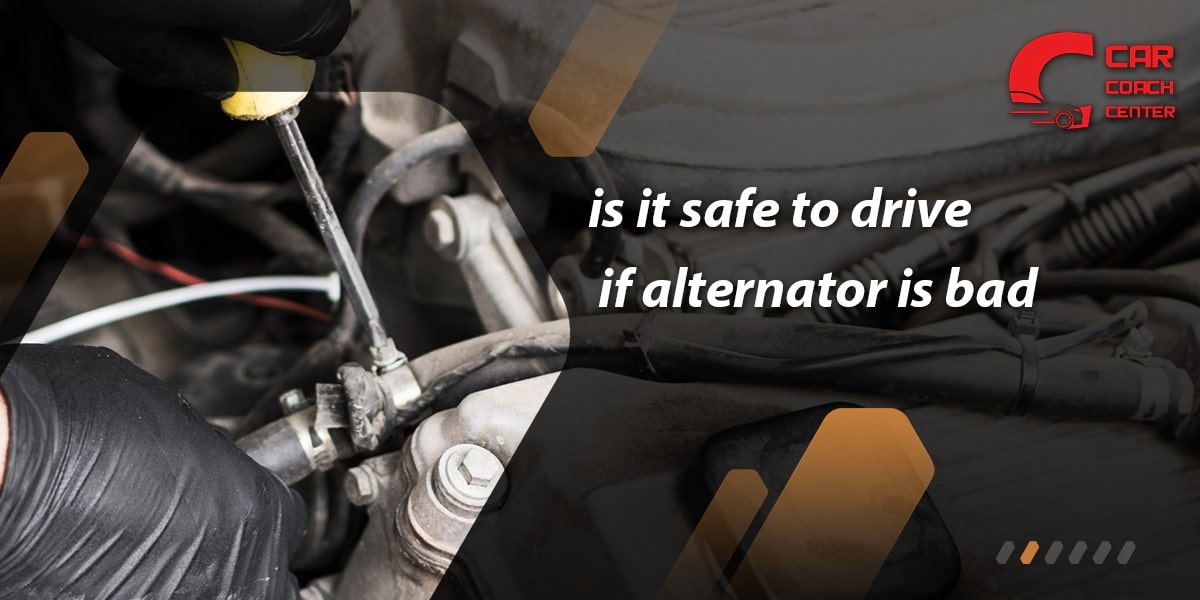
A failing alternator can also disrupt the proper functioning of other critical systems in your vehicle. For example, the fuel injection system relies on a stable electrical supply to operate efficiently. If the alternator cannot provide consistent power, you may experience reduced fuel efficiency, engine performance issues, or stalling.
Furthermore, the lack of power from a bad alternator can impact the operation of the vehicle’s cooling system. The cooling fan, responsible for preventing the engine from overheating, relies on electrical power to function effectively. A compromised alternator may result in inadequate cooling, potentially leading to engine overheating and damage.
Safety First Potential Risks of Driving with a Faulty Alternator
Can you drive with a bad alternator? While it may be tempting to continue driving with a failing alternator, it’s essential to consider the potential risks involved. Ignoring or neglecting the issue can lead to hazardous situations on the road, jeopardizing both your safety and the safety of others.
One of the significant risks associated with driving with a faulty alternator is the possibility of sudden loss of power. As the alternator provides the necessary electrical power to various components of your vehicle, including the ignition system, fuel injection system, and crucial safety features like lights and indicators, a malfunctioning alternator can cause these systems to fail unexpectedly.
Imagine driving at night when suddenly your headlights go out, leaving you with limited visibility. Or consider the hazards of losing power to your braking system, rendering it less effective. These scenarios highlight the potential dangers of driving with a bad alternator.
Furthermore, a failing alternator can result in an unreliable battery. A weakened or drained battery can lead to unexpected engine stalls, particularly when the vehicle is idling or operating at low speeds. Suddenly losing power while driving can be extremely hazardous, especially on high-traffic or busy highways. It can compromise your maneuverability, posing a significant risk to yourself and other drivers.
Another concern is the potential for overheating. As mentioned earlier, the alternator is crucial in powering the vehicle’s cooling system. If the alternator cannot provide sufficient power to the cooling fan, it may result in inadequate heat dissipation from the engine. Overheating can cause severe engine damage, leading to costly repairs and potential breakdowns in the middle of your journey.
Temporary Solutions: Tips and Tricks to Keep Your Car Moving with a Bad Alternator
Can you drive with a bad alternator? While it is not ideal, there are temporary solutions you can employ to keep your car moving if you find yourself in a situation with a faulty alternator. These tips and tricks can help you reach your destination or safely get your vehicle to a repair facility.
Charge the battery
Ensure your vehicle’s battery is fully charged before setting off on a journey. You can use an external battery charger or jump-start your car with the assistance of another vehicle or a portable jump starter. This will provide temporary power to your electrical systems and keep your car running for a limited period.
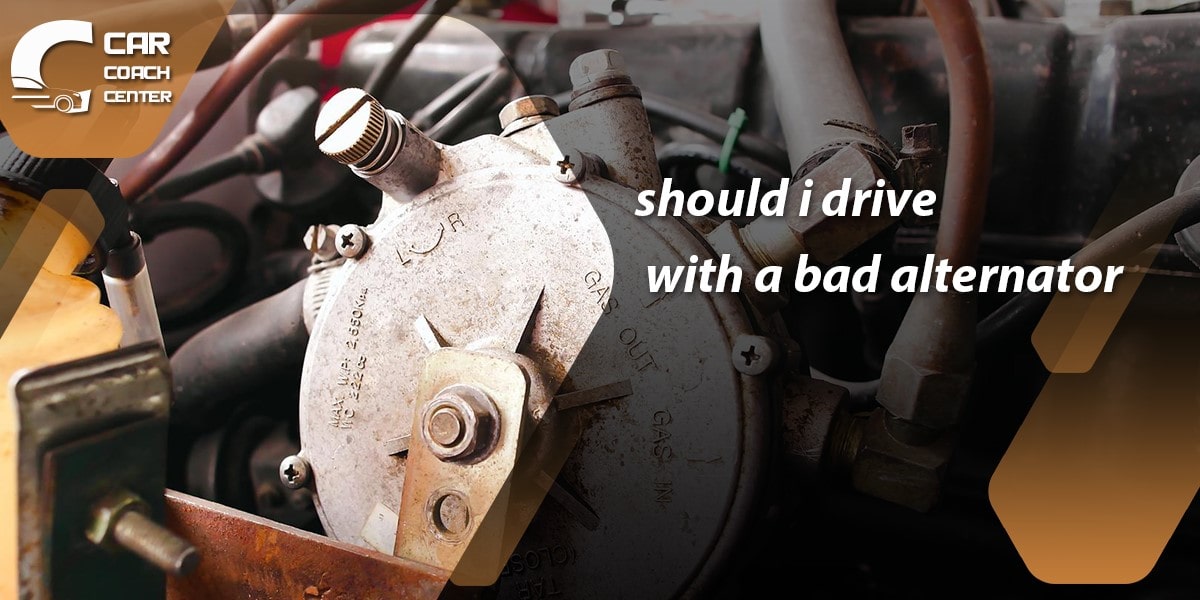
Limit electrical usage
Minimize using electrical components that consume excessive power. Turn off unnecessary lights, radio, air conditioning, and other non-essential accessories. By reducing the electrical load on the battery, you can prolong its charge and potentially extend your driving time.
Keep the engine running
Once your vehicle is started, keep the engine running as long as possible. Avoid frequent stops or idling for extended periods, as the alternator won’t be able to recharge the battery effectively. Plan your route accordingly and maintain a continuous drive whenever feasible.
Monitor the battery
Consider the battery’s condition and charge level while driving with a bad alternator. Keep an eye on the battery warning light on your dashboard, and if it illuminates or if you notice signs of a weakening battery, take immediate action. Find the nearest repair facility or a safe location to address the issue promptly.
Carry a portable jump starter
Investing in a portable jump starter can be a lifesaver if you’re driving with a bad alternator. These compact devices allow you to jump-start your vehicle without needing another car. Keep one in your car’s emergency kit to provide a temporary power boost when needed.
Seek professional assistance
While temporary solutions can help in certain situations, it’s crucial to remember that they are not long-term fixes. Driving with a bad alternator should be seen as a temporary measure, and you should prioritize getting your vehicle inspected and repaired by a qualified mechanic as soon as possible.
DIY or Professional Help
Weighing Your Options for Alternator Repair or Replacement
Can you drive with a bad alternator? Now that you have explored temporary solutions to keep your car moving, it’s time to consider your options for alternator repair or replacement. When facing a faulty alternator, consider tackling the job yourself or seeking professional assistance. Let’s weigh the pros and cons of each approach to help you make an informed decision.
DIY Repair
Repairing your alternator yourself can be a cost-effective option, especially if you have experience working on cars and possess the necessary tools. DIY repair allows you to control the process and save money on labor costs. However, it’s important to consider the complexity of the task. Alternator repair can involve intricate electrical connections and delicate components, requiring technical knowledge and expertise. If you need more confidence in your abilities or more proper tools, DIY repair may lead to further complications or damage to your vehicle.
Professional Help
Seeking professional assistance for alternator repair or replacement offers several advantages. Automotive technicians have the expertise and specialized tools to accurately diagnose and address alternator issues. They can efficiently handle the complexities of the job, ensuring proper installation and functionality.
Professional help also comes with the added benefit of warranty coverage and access to high-quality parts. Additionally, mechanics can identify any underlying issues related to the alternator or other components, potentially preventing future breakdowns and costly repairs.
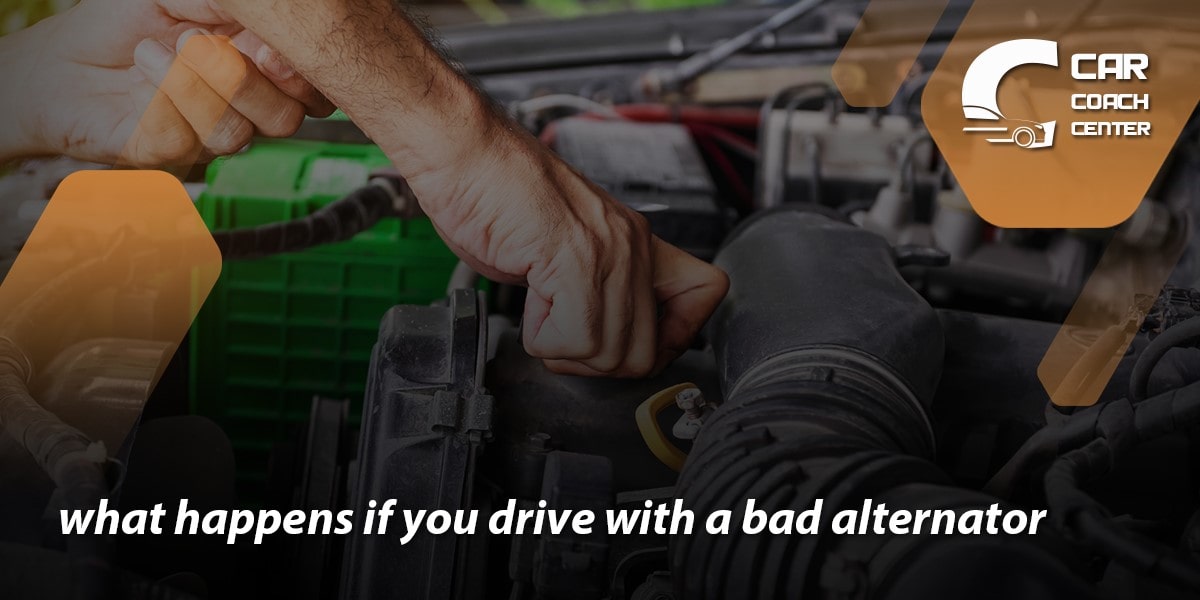
Considerations
When deciding between DIY repair and professional help, it’s crucial to consider factors such as your skill level, available time, and the complexity of the alternator problem. DIY repair may be suitable for minor issues or if you have confidence in your abilities. However, professional assistance is recommended for complex repairs or if you lack the experience to avoid potential errors and ensure a reliable fix.
conclusion
In conclusion, “Can you drive with a bad alternator?” demands careful consideration and understanding. While temporary solutions can keep your car moving for a short period, it’s essential to recognize the warning signs and potential risks associated with a faulty alternator.
Dim headlights, unreliable battery performance, and compromised vehicle systems pose significant safety hazards. Therefore, addressing the alternator issue promptly is crucial for your well-being and the safety of others on the road. Whether you choose the DIY route or seek professional help, it’s important to make an informed decision based on your skills, the complexity of the problem, and the warranty implications.
Carcouchcenter.com provides valuable information and resources to guide you through alternator-related concerns and ensure your vehicle’s optimal performance and safety. So, prioritize the health of your vehicle, and let’s keep the road a safer place for everyone.
Can I drive with a bad alternator?
It is not recommended to drive with a bad alternator due to potential safety hazards and the risk of sudden loss of power.
What are the warning signs of a failing alternator?
Warning signs include dim or flickering headlights, a dead or weak battery, unusual sounds, and electrical malfunctions in your vehicle.
Should I attempt to repair the alternator myself?
DIY repair is an option if you have the necessary skills and tools. However, it is recommended to seek professional help for complex alternator issues.

